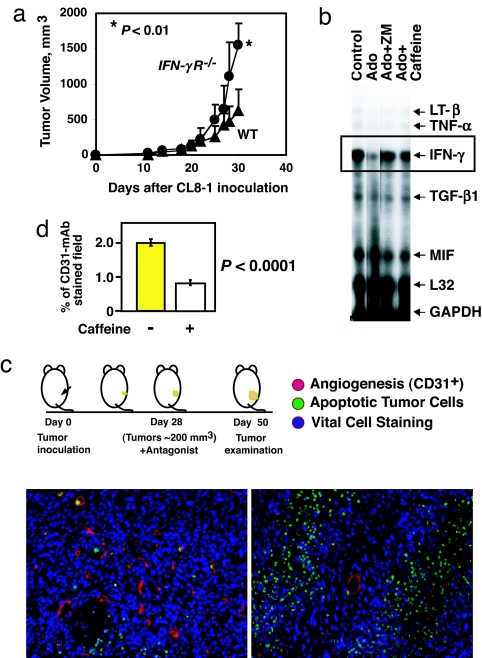Fig. 5.
Treatment with caffeine inhibits neovascularization and increases apoptosis of CL8-1 melanoma in mice. (a) Genetic evidence that growth of inoculated CL8-1 melanoma cells depends on functional IFN-γ receptors (IFN-γR). The IFN-γR−/− or WT C57BL/6 mice (8–10 mice per group) were inoculated s.c. with 3 × 106 CL8-1 melanoma cells. All data represent mean ± SEM. (b) Extracellular adenosine inhibits up-regulated IFN-γ gene transcription in activated antitumor T cells, and this inhibition is prevented by adenosine receptor antagonists ZM241,385 (ZM) and caffeine. mRNA levels were analyzed by an RNase protection assay. (c) Immunohistochemical demonstration of increased tumor destruction and inhibition of angiogenesis in tumors in mice treated with caffeine. Mice were inoculated with CL8-1 and treated with caffeine. CL8-1 melanomas growing in C57BL/6 mice were removed at day 50 from control (Lower Left) and caffeine-treated (Lower Right) mice. (d) The degree of angiogenesis was determined as the percentage of CD31+ staining to the total field. The y axis (percentage of fields positive for CD31) reflects the percentage of area occupied by blood vessels in comparison to the total tumor area. The summary of measurements of two tumors per group is presented. Methods for the RNase protection assay and immunohistochemistry are provided in Supporting Text.

